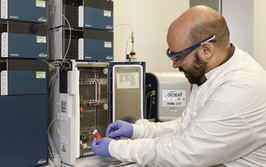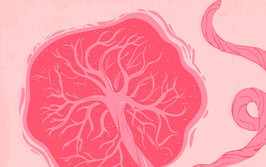
Reduce Waste in Pharma Packaging
What sustainability benefits can be gained by choosing the right blister package material?
Jared O’Connell | | 3 min read | Practical

Patient safety is the top priority for pharmaceutical suppliers when making a packaging selection, but sustainability has become another important consideration. According to the World Economic Forum, adopting innovations that simplify packaging and transportation is one of the top six ways to shrink environmental footprints. (1) This creates a challenge for companies trying to find packaging solutions that meet these needs, but a tool is available to help.
Honeywell’s new Aclar® Impact Estimator can help pharmaceutical companies calculate the potential reduction in packaging material, weight, waste, and carbon dioxide emissions by changing their packaging material from cold form foil (CFF) to Aclar ultra-high moisture barrier blister packaging.
The tool was validated and developed using data on Aclar’s total cost of ownership, market data, and data provided by customers about the uses of Aclar and CFF. The estimator generates potential reductions based on customizable elements, including capsule size, volume of packages per year, and method of transport. Data can then be used to calculate potential savings, including warehousing and transportation costs, as well as capital expenditures.
The estimator can support the industry’s transition to more sustainable practices by demonstrating the tangible impact that waste reduction savings can provide.
(Table 1) By reducing pack size, secondary packaging requirements, and total packaging weight with Aclar, this pharmaceutical company would be able to reduce carbon dioxide emissions equivalent to those produced by driving a car more than 26,937 kilometers (16,738 miles) and save 52 percent of the trees required to make cardboard.
(Table 2) By reducing pack size, secondary packaging requirements, and total packaging weight with Aclar, this pharmaceutical company would be able to reduce carbon dioxide emissions equivalent to those produced by driving a car more than 443,157 kilometers (275,365 miles) and save 47 percent of the trees required to make cardboard.
| Barrier blister packaging | Cold form foil | Annual Savings | |
| Total packaging volume (cubic meters) | 110 | 231 | 122 (53%) |
| Total packaging weight (tons) | 8 | 14 | 7 (47%) |
| Total carbon dioxide emissions (tons) | 17 | 21 | 4 (18%) |
| Trees required to produce cardboard | 54 | 112 | 58 (52%) |
Table 1: 1 million packs per year, size 2 capsules, shipped from Houston to Rotterdam, by sea. Source: https://aclar.calculator.honeywell.com/
| Barrier blister packaging | Cold form foil | Annual Savings | |
| Total packaging volume (cubic meters) | 3,299 | 6,733 | 3,434 (51%) |
| Total packaging weight (tons) | 236 | 414 | 177 (43%) |
| Total carbon dioxide emissions (tons) | 530 | 592 | 62 (10%) |
| Trees required to produce cardboard | 1,715 | 3,225 | 1,510 (47%) |
Table 2: 25 million packs per year, size 0 capsules, shipped from New York City to Chicago, via truck. Source: https://aclar.calculator.honeywell.com/
Aclar is a premium, high- barrier packaging solution designed to protect drugs with high moisture sensitivity. It is the highest moisture barrier polymer available and a more sustainable solution that requires less material to protect the product. Aclar films are used in combination with other polymer substrates, including PET and PP. Its lamination and thermoforming properties allow for a high pill density, reducing pack size and total packaging material used.
Thermoformed Aclar blisters can reduce pack size and secondary packaging by 50 percent on average compared to the same material packaged in CFF (based on the design and dosing regimen). With a higher density of pills per package, suppliers using Aclar can reduce raw material usage, waste, and packaging weight, which can help lower transport- related environmental impact and costs.
Honeywell’s Aclar Impact Estimator can support the industry’s transition to more sustainable practices by demonstrating the impact waste reduction can provide without sacrificing patient safety or medication efficacy.
To learn more about the Aclar Impact Estimator, visit aclar.calculator.honeywell.com
- WEF, “6 ways the pharmaceutical industry can reduce its climate impact”. (2022) Available at: https://bit.ly/3QIFRPW
General Manager, Healthcare Packaging, Honeywell Advanced Materials, New Jersey



















